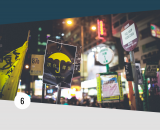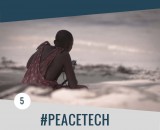Civil Society in Syria: A Milestone for Sustainable Peace
Sustainable peace in Syria cannot be achieved without the engagement of civil society in generating solutions for the problems threatening to tear up the country today. Civil society must also be involved in planning for the future of the country. The emergence of civil society in Syria over the last two years and seven months, aimed to find a spot for people’s voices that had been silenced for decades. Members of the Syrian civil society include lawyers, politicians, activists and other Syrian opposition figures who issued the Damascus Declaration in 2005 that called to end Assad family rule and move Syria towards democratic age. Some of them were imprisoned by Assad security forces and many fled outside the country but once the Syrian uprising started, they resumed their calling for democratic change. Other civil society groups are composed of youth organizations, aid or inter-religious organizations established in rebel-held areas that deliver relief, food and medical assistance, raise funds, and spread awareness.
But the emergence of civil society was not easy: it faced a brutal crackdown. In a country where the ruling regime restricts freedoms and dignity, a vocal civil society will shatter the government’s iron grip over its people, will make a way for positive dialogue, and will celebrate diversity in a country full of sects, religions and ethnicities. This is the threat civil society poses in Syria.
Before the revolution started in March 2011, most of civil society groups were either banned or controlled by the government. No active and effective groups were allowed to be formed and operate inside Syria, except charities with no political or advocacy agenda. But when the domino effect of the Arab uproar reached Syria, it marked the awakening of civil society on all levels.
The first eight months following the Syrian uprising were marked by peaceful protests and the blossoming of Local Coordinators. These new entities were established mainly by Syrian youth who believed in nonviolent, peaceful, resistance. The Coordinators worked to teach people the culture of peaceful struggle, prepared signs and songs for the protests, delivered the aspirations of the people inside and outside the country via social media, worked closely with Syrian civil society groups established abroad to support those who are inside, and demanded the repeal of a decades-long emergency law banning demonstrations. The Coordinators included people from different ideological orientations and carried the hopeful promise of a new, inclusive, and progressive Syria. While this vision of Syria is supported by many, it is not aligned with the regime.
The brutal crackdown on people from March 2011 until today encouraged certain segments of the population to initiate an armed revolution that, in turn, led to a shift among civil society groups on how to organize themselves and operate. Unfortunately, the pandemonium of mortars silenced demands of civil groups for peaceful change. Nevertheless, civil society continued its work through social media with a lower, less visible tone. Civil society now focuses on working within endangered field hospitals, bringing medications to the areas infected with diseases, documenting human rights violations by the regime and more recently any rogue armed group, reporting violations to international humanitarian organizations, raising awareness on how to seek shelter during shelling and armed clashes, and creating makeshift schools to provide children the education they missed for 2 years. The work of civil society now reflects the immediacy and threats of the current situation in Syria and is less able to focus on the bigger, longer term vision of change for the country.
One of Syrian civil society’s creative works is a program designed by Syrians living abroad called Aymta (which means When), an early alarm system for ballistic missiles based on collaboration between rebel groups located near the regime’s military camp from which ballistic missiles are launched, and activists living in the diaspora. The rebel groups send an SMS to a list of registered members alerting them that a ballistic missile is heading their way so they can stay in the streets rather than be buried under tons of rubbles. Another example includes a project started by civil society in the city of Aleppo called Lahoon Wa Bas (Enough) to protest and report the violations of extremist groups against citizens and activists. Lahoo Wa Bas activists use social media to inform other organizations of what is going on, they send information to Syrian civil society abroad who will circulate it and ask for investigation. Activists working in this group are in greater risk because they are targeted by both regime forces and extremists.
Because of their relentless efforts to combat, nonviolently, the regime’s abuses, civil society activists inside Syria and in the diaspora are the main targets of the Syrian regime, war lords and extremists. They are the platform to build on a new heaven and earth in the upcoming Syria. And for them to continue their battle for peace, the international community needs to support them, financially or politically, protect them and amplify their voices. They need to be included in international peace talks. Their work must be facilitated, encouraged and promoted through media.

